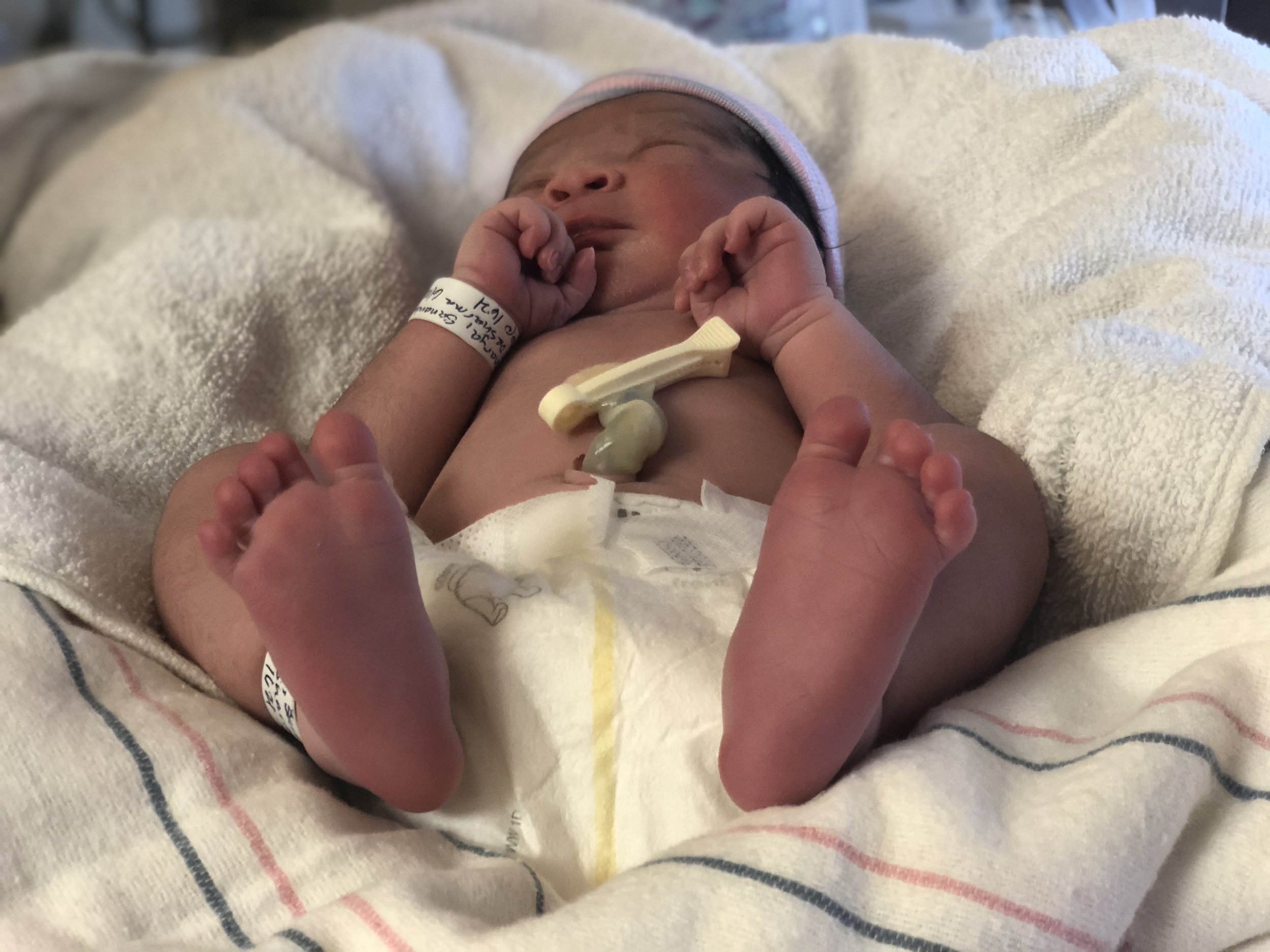Birth story - Sananda and baby Kyra
In the second month of pregnancy we found out that my PAPP A levels were considerably low <0.5. We were sitting in the doctor’s office when she entered with my blood report and said most of it looks good but the only issue was low PAPP A. It was a first time pregnancy for us and we didn’t know what that was and she understood that and she explained it to us.
PAPP A or pregnancy associated plasma protein A is a protein encoded by the PAPP A gene in humans. PAPP A is a secreted protease whose main substrate is insulin like growth factor binding proteins and having low PAPP A can affect baby’s growth.
In simple terms, PAPP A is an essential protein required by the foetus for healthy baby growth. Low PAPP A increases the risk of the baby being born with lower weight and this is also used as a screening test for down’s syndrome to name a few. There are impacts on the mother as well like pre-eclampsia and gestational hypertension. Like all to be parents, we were more worried about the baby’s growth and it kept playing in my mind. This was my first pregnancy and we lived in the US with no family around (they were residing in India) so we were really worried on hearing this.
The doctor prescribed aspirin to me, 50mg one tablet a day from my second month of pregnancy and it continued till my last trimester. Aspirin is the lightest form of a blood thinner and this increases blood flow to the foetus. Starting low dose aspirin from the early days of pregnancy reduces the risk of placenta mediated complication including restricted growth and prenatal death. This is the one of the easy and primitive measures that can be taken to minimise the risk. There is nothing you can eat or do to increase the level of PAPP A. We just stopped it a couple of days prior to my delivery. Along with this, we aligned on getting more frequent screenings done to check on the baby’s growth.
We came back home and started doing our own research of others who had low PAPP A as well. Many mentioned having even lower levels than me and they had given birth to normal babies. This gave us some hope but there was still a long way forward to be sure that our baby was all good.
We kept going to all the screenings as prescribed and in each one, we were relieved to know that our little girl was showing all good signs. The last screening we did was in the 36th week and the doctor said that it is almost like you didn’t have low PAPP A at all. This was music to our ears. We were so happy.
While the baby was doing well, low PAPP A had its other implications on me, I had pre-eclampsia and developed high blood pressure hence, the doctor recommended we might have to go for an earlier delivery. We had to get an additional ultrasound screening to check the baby’s position and growth due for the week. With my increasing blood pressure, the doctor got me admitted on the last day of my 37th week of pregnancy. I had a normal delivery after being artificially induced into labor and gave birth to a beautiful little girl of 3 kgs/ 6.6 lbs which is actually more than an average baby at birth.
She is 8 months old now and truly it doesn’t seem like I had low PAPP A at all. She is growing beautifully and there are no concerns. I guess we were among the lucky ones. Also, we are thankful and grateful to our doctor for taking such good care of us.
I am not sure if the PAPP A screening is being practised or even popular globally so I would highly recommend that you at least talk to your doctor about it in your early stages in pregnancy and get yourself screened, as early screening can at least help in working on it and try to minimise the risk.
More From The Positive Birth Company
- Explore our digital courses for pregnancy, birth and beyond. Including our Hypnobirthing Pack
- Download our virtual birth partner app, Freya, the app will coach you through every surge whilst keeping track of your progress
- Get our bestselling book 'Hypnobirthing: Practical Ways to Make Your Birth Better'
- Receive a FREE call with one of our midwives when you purchase one of our eligible courses
- Get yourself FREE MP3 positive affirmations by subscribing to our mailing list here

